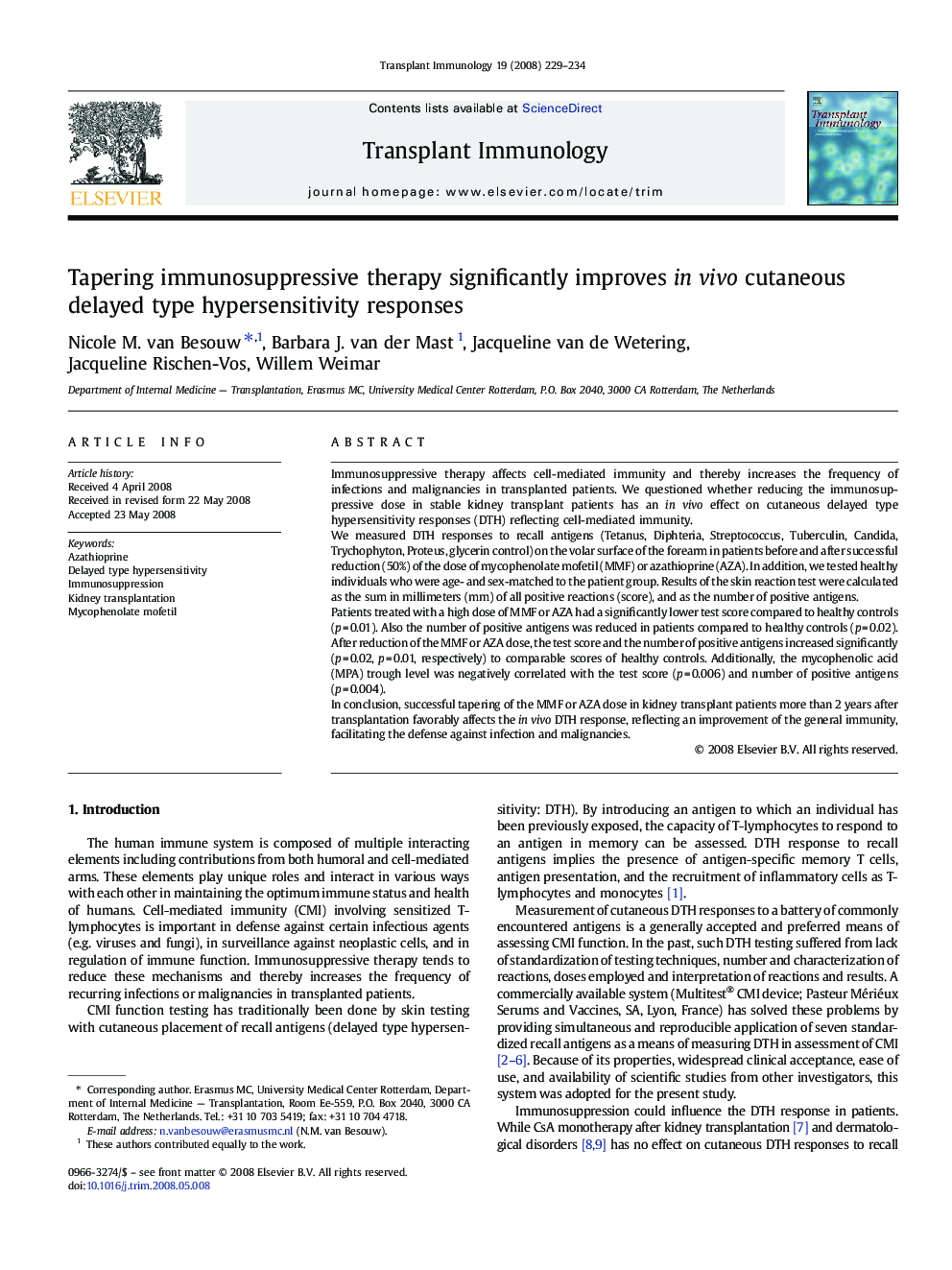| کد مقاله | کد نشریه | سال انتشار | مقاله انگلیسی | نسخه تمام متن |
|---|---|---|---|---|
| 3392580 | 1592687 | 2008 | 6 صفحه PDF | دانلود رایگان |

Immunosuppressive therapy affects cell-mediated immunity and thereby increases the frequency of infections and malignancies in transplanted patients. We questioned whether reducing the immunosuppressive dose in stable kidney transplant patients has an in vivo effect on cutaneous delayed type hypersensitivity responses (DTH) reflecting cell-mediated immunity.We measured DTH responses to recall antigens (Tetanus, Diphteria, Streptococcus, Tuberculin, Candida, Trychophyton, Proteus, glycerin control) on the volar surface of the forearm in patients before and after successful reduction (50%) of the dose of mycophenolate mofetil (MMF) or azathioprine (AZA). In addition, we tested healthy individuals who were age- and sex-matched to the patient group. Results of the skin reaction test were calculated as the sum in millimeters (mm) of all positive reactions (score), and as the number of positive antigens.Patients treated with a high dose of MMF or AZA had a significantly lower test score compared to healthy controls (p = 0.01). Also the number of positive antigens was reduced in patients compared to healthy controls (p = 0.02). After reduction of the MMF or AZA dose, the test score and the number of positive antigens increased significantly (p = 0.02, p = 0.01, respectively) to comparable scores of healthy controls. Additionally, the mycophenolic acid (MPA) trough level was negatively correlated with the test score (p = 0.006) and number of positive antigens (p = 0.004).In conclusion, successful tapering of the MMF or AZA dose in kidney transplant patients more than 2 years after transplantation favorably affects the in vivo DTH response, reflecting an improvement of the general immunity, facilitating the defense against infection and malignancies.
Journal: Transplant Immunology - Volume 19, Issues 3–4, July 2008, Pages 229–234